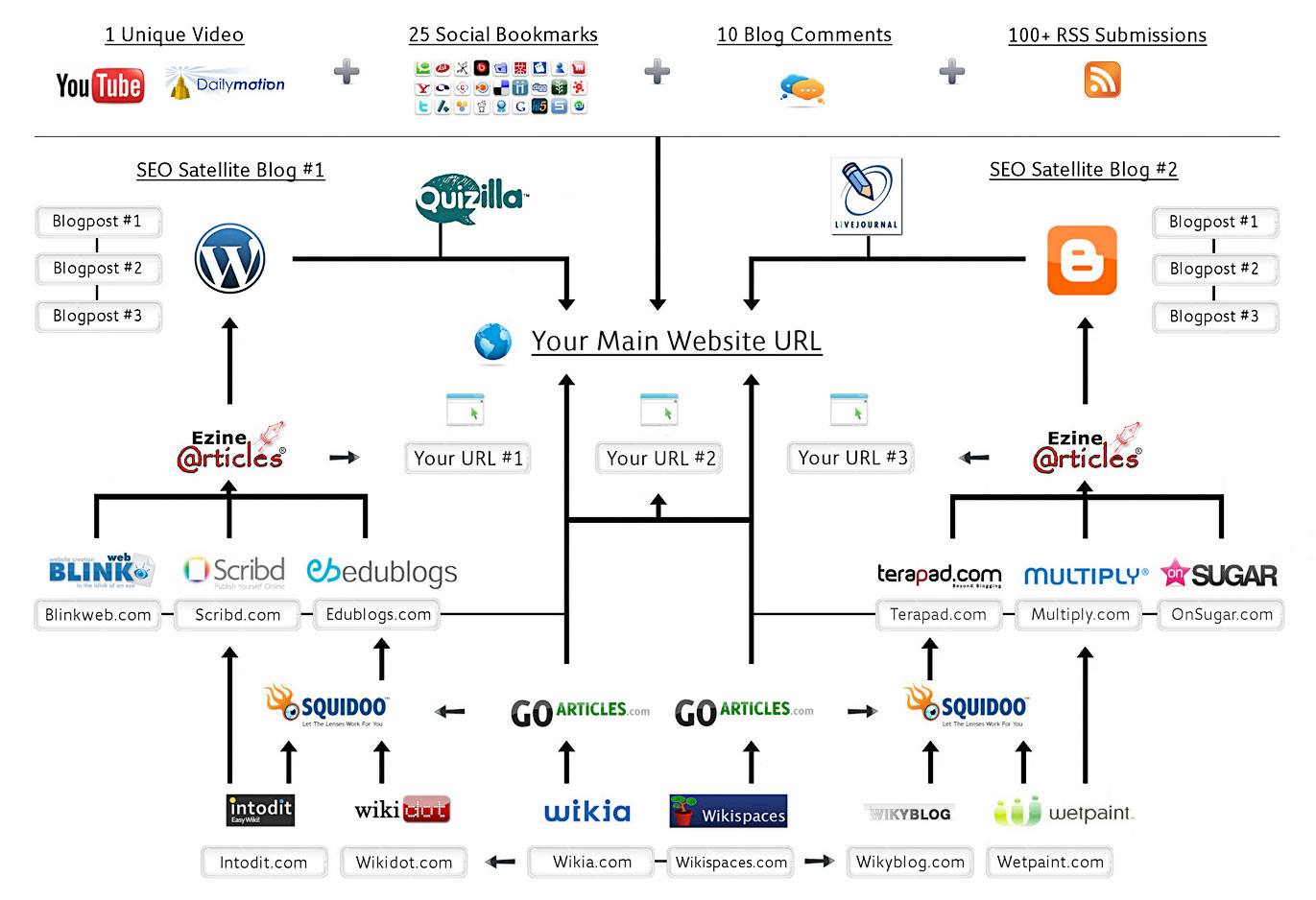What is the definition of link building?
(Quoted from Robert Adler’s fantastic Vegas talk)
The process of obtaining high quality linkage data from external websites to increase relevance and achieve a higher ranking with the major search engines. A game of building connections through different methods of internet promotion. A retweet on Twitter, or other social media, is also link, though most people don’t see it as such!
- Show Google you’re doing something
- Keep your link in your profile
- Check out http://knowem.com/websites/all for a list of EVERY social media site.
- Slight spikes are completely natural – Google takes time to find and index links, hence small spikes are entirely organic.
- If you build links the right way, it will peak and stay. Dancing is completely normal if you’re doing anything over 100 links per day. It’s not a bad thing.
Metrics to consider when establishing competitiveness
- Domains backlinks
- URLS Backlinks
- Domain Age
- How many words are on your page (not the same as Keyword density)
- Number/Source of Ads on the page (relevant since Panda update)
- Facebook likes on the domain/deeplink
- Twitter mentions to rootpage/deep link
- Diggs.Stumbles.Delicious…all the way down the list.
- Pages indexed; If you have 100 pages and Google indexes 15 after a year, they do not trust you and this needs to be fixed.
The Hats
Whitehat – Seen as never breaking the rules. Known to do everything by the book. Would never use specific techniques to manipulate rankings. Slow and steady wins the race.
Likes
- Press Releases
- Old school marketing tactics,
- Guest posts
- Doing things manually
- Directory Submissions
- Linkbait
- Sitewide exchanges
- Social Bookmarks
- Blogger Outreach
- Matt Cutts
Dislikes:
- Automation of any sort (except reporting)
- Robert Adler
Greyhat – They may spam some links but they won’t cloak their onpage. Greyhats often buy links from the blackhats. They’re like brokers.
Likes:
- Cleaner links
- More complex linking schematics/filtering tiers
- Usually has testbed sites to throw things at for testing (important for algorithm updates)
- Rides the line between obviously black hat and white hats wouldn’t do that
Blackhat– Rulebreakers. Disdained by Whitehats. Spammers, linkbuilders by any means necessary.
Likes
- Promoting lots of sites simultaneously
- Linking schematics that will make your head spin
- Building more links than an entire country in one day
- If it’s scalable and has a start button he has it
Dislikes
- Matt Cutts
Methods
- Blog Comments
- Social bookmarks
- Forum Profiles
- Web 2.0’s
Tips
- Don’t trust case studies
- Do your own tests: Google is continually changing
Which links work the best?
- Forum links: (Xrumer)
- Sitewide: ROS (Run of Site) Links, Signature Links, Category Links
- Blogs links: contextual blog posts, guest posts, blog network posts, private network posts, buying a link in existing posts (textlinkads.com) Blog comments, blogroll links, sitewide footer.
- Social links: bookmarks, comments, Pligg sites, Plus Ones, Reddit, Digg, FB, Stumbles, Twitter (Retweets do count)
- Article Links: Now one of the most common linkbuilding footprints (think Ezine articles)
- Press Release links: Free PR sites are not necessarily bad. Paid links, however, bring syndication (PR newswire, PR web and Pr Log)
- Directory Links: Can be powerful. High quality are almost always paid. A listing on a list of other listings! Hot vs not, Best of the Web, Business.com, DMOZ, Yahoo Directory, Shopping Sites (Jo Ant)
- Web 2.0’s: Sites with a Social Component

Rss Feeds to Use
- Feed Fury
- Feed Fairy
- Feed Age
- RssMountain
- Blog Catalog
